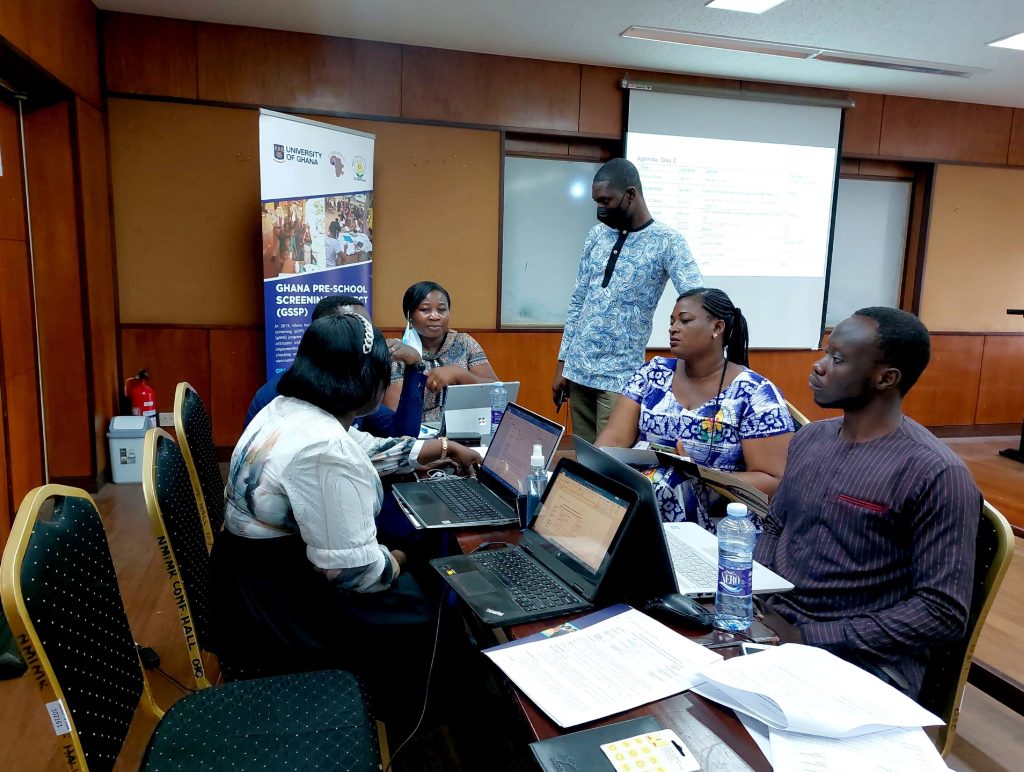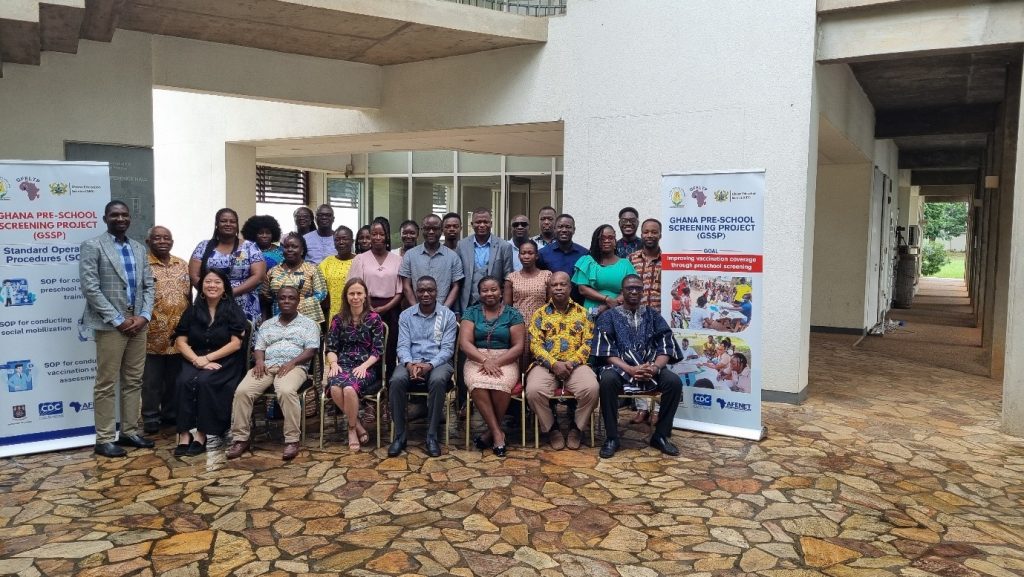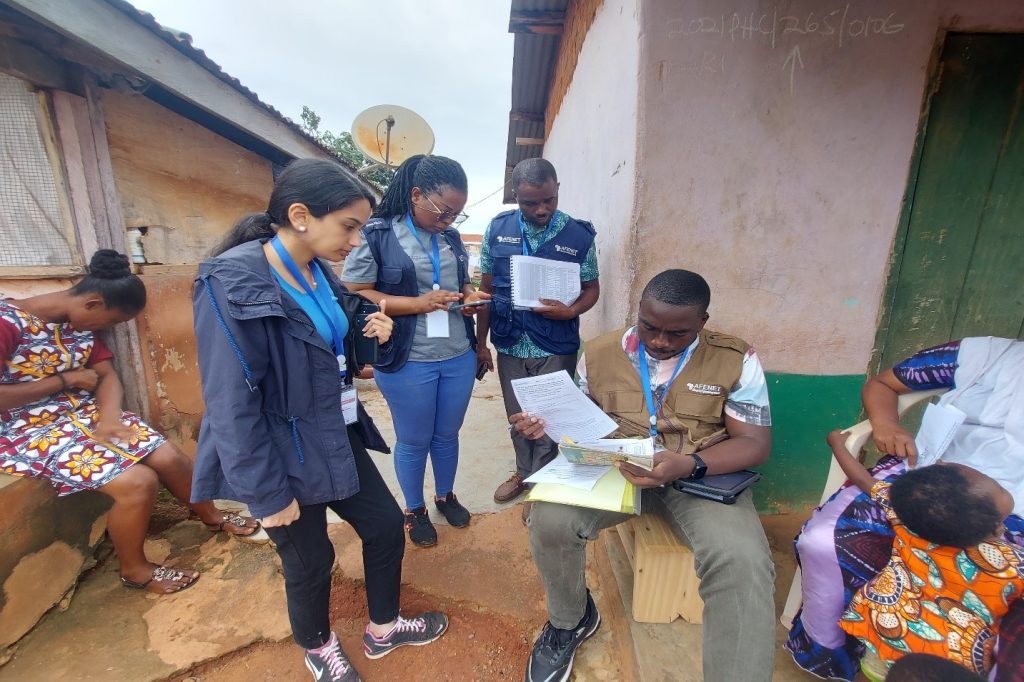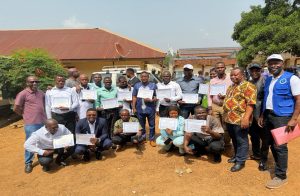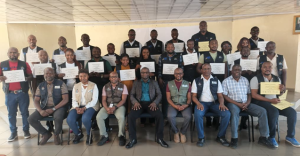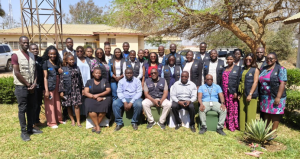Evaluation of Ghana Pre-School Screening (2019-2024)
-
by
AFENET
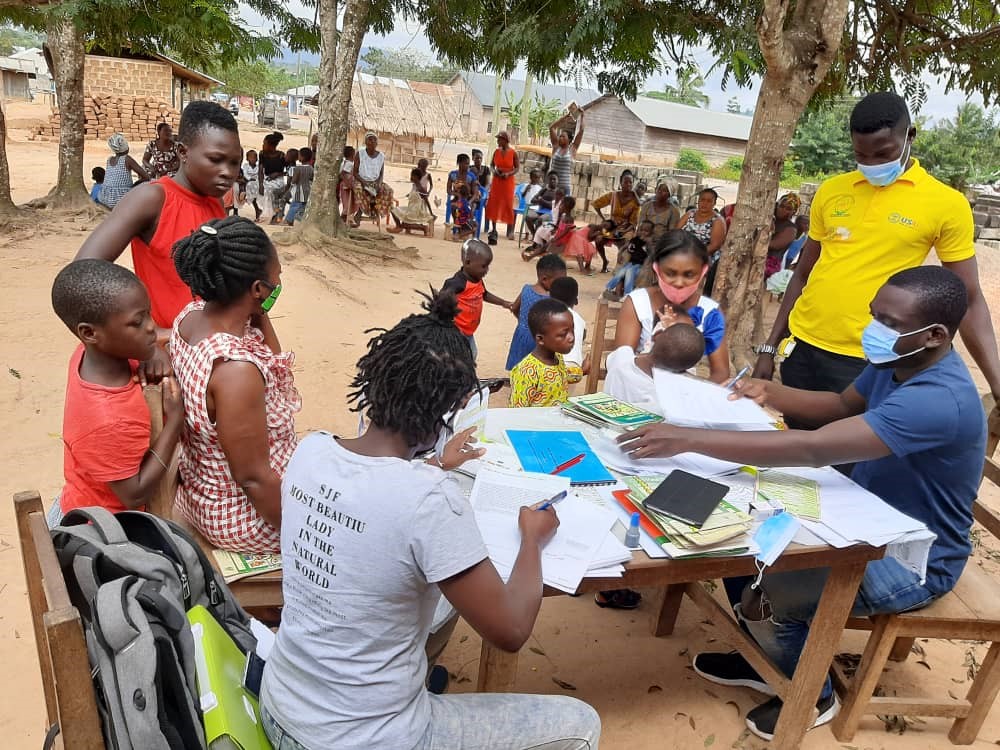
A Comprehensive Look into Ghana’s Pre-School Health Screening Initiatives
In August 2024, AFENET, in collaboration with the United States Centers for Disease Control and Prevention (CDC), hosted a significant dissemination meeting in Accra for the Ghana School Screening Project. This meeting gathered a diverse group of stakeholders, including representatives from the Ghana Health Services, the Family Health Division, District Directors of Education and Health, District Disease Control Officers, and School Health Education Program (SHEP) coordinators. Participants from schools and health facilities in districts supported by the project were also present, underscoring a collective effort to enhance children’s health across Ghana.Background
The Ghana Pre-School Screening initiative, launched in 2019, marked a pivotal moment in the country’s public health strategy. For the first time, Ghana implemented routine preschool health screening (PSS) nationwide, targeting children in kindergarten and primary level one. The primary objective of this initiative is to identify the health needs of learners, ensuring appropriate referrals, treatment, and management. The comprehensive screenings included general physical examinations, skin assessments, oral and dental examinations, vaccination status evaluations, speech and growth assessments, and checks for intellectual disabilities. In response to the implementation of the pre-school screening, the CDC, AFENET, and Ghana Health Services conducted an evaluation focusing on the immunization history component of the program. The evaluation aimed to understand the knowledge, attitudes, and practices (KAP) of those managing and implementing the school screening program, while also assessing the short-term effects of checking vaccination status at school entry on vaccination coverage.Evaluation Phases
The evaluation unfolded in two phases:- Phase One targeted two districts in the Western North Region (Aowin and Sefwi-Wiawso) during the 2019/2020 school year.
- Phase Two expanded to include three districts (Aowin, Sefwi-Wiawso, and Sefwi Akontonbra) during the 2022/2023 school year, with a total of 217 schools participating in the evaluation for the latter phase.
Specific Objectives
The evaluation sought to assess the short-term effects of vaccination status checks as part of Ghana’s pre-school health screening, focusing on three main areas:- Identifying children with missed doses of vaccines from Ghana’s national immunization schedule.
- Tracking the administration of missed vaccine doses within the target population.
- Evaluating changes in immunization coverage among the target group throughout the evaluation period.
Key Activities Implemented
Several key activities were undertaken during the evaluation process:- Phase One Data Collection (September to December 2019): Assessed knowledge gaps among healthcare workers regarding the implementation of the vaccine catch-up policy.
- Development of Standard Operating Procedures (SOPs): Informed by phase one results, SOPs and guidelines were developed for vaccination status assessment and documentation of preschool screening activities.
- Training for Healthcare Workers: Comprehensive training sessions were conducted on utilizing the SOPs for preschool screening, including social mobilization efforts.
- Phase Two Data Collection (January to September 2023): Focused on assessing coverage, knowledge, attitudes, and the cost-effectiveness of the school screening intervention. Over 400 school staff and 89 healthcare workers were interviewed, along with more than 1,300 caregivers of school-aged children targeted for PSS.
Key Findings
Phase 1 Evaluation Findings:- Despite health staff exhibiting positive attitudes toward pre-school vaccination status checks, significant knowledge gaps regarding the vaccination catch-up policy led to missed opportunities for administering vaccines.
- The evaluation revealed training gaps: among the 85 healthcare workers interviewed, less than half (44%) reported having received training on preschool health screening, and only 30% (25/87) demonstrated a good understanding of the catch-up policy. This gap resulted in missed opportunities to administer missed vaccines to age-eligible children for example while 628 (33.3%) children were missing vaccine doses at baseline for which they could be “caught up” only 4.5% (28) were dosed during the period
- Healthcare workers: of 85 HCWs involved in preschool screening, less than half, 44% of all those interviewed reported receiving training on pre-school health screening and less than 30% (25/87) had good knowledge on Ghana’s vaccination catch up policy
- School staff: most school staff; 98% or 95/97 school staff did not receive training.
- Most health and education staff reported positive attitudes towards checking vaccination status during pre-school health screening. All health care workers had knowledge gaps about how to assess children vaccination status and determine eligibility for catch-up vaccination. An array of challenges was reported by health care and school staff to contribute to sub-optimal implementation of pre-school health screening. Challenges included absences of caregivers on the day of screening, some schools not well organized, no written operational guidelines in the non-supported (standard) district and, in come places, no advanced notice about the activity to teachers.
- Many caregivers (65% (373/705) in supported districts, 51% (252/690) in standard district) reported attending pre-school screening activities. Caregivers generally held positive attitudes towards childhood vaccination. Caregivers in reported never hearing about PSS – 11% in supported districts and 25% in standard districts.
- In supported districts, 17.2% (99/576) of children received at least one missing vaccine dose, 11.8% (68/576) of children were “fully caught up” and no longer missing vaccine doses they were eligible to receive.
- In standard district, out of 265 children missing doses at baseline, only 1.5% received a dose during intervention period.
- Among the 261 children who did not receive a dose during intervention period, 3% received a dose during follow up period.
- In standard district, 4.5% (12/265) of children received at least one missing vaccine dose, 3.8% (10/265) of children were “fully caught up” and no longer missing vaccine doses they were eligible to receive
Conclusions
Overall, both school staff and healthcare workers reported positive attitudes towards preschool screening initiatives in 2019 and 2023. However, knowledge and practice gaps were identified. Healthcare workers in AFENET-supported districts showed a better understanding of Ghana’s catch-up immunization schedule and successfully delivered more missing vaccines than those in non-supported districts. The implementation of PSS demonstrated its potential in identifying and addressing missed routine vaccinations, especially for vaccines in the second year of life which have low coverage, and this is crucial for optimizing health and educational outcomes for Ghana’s children.